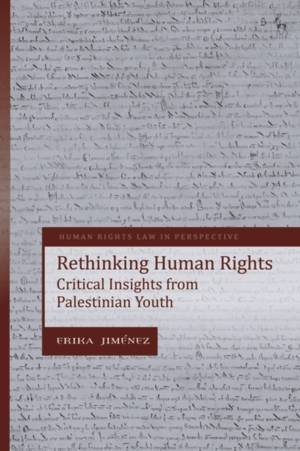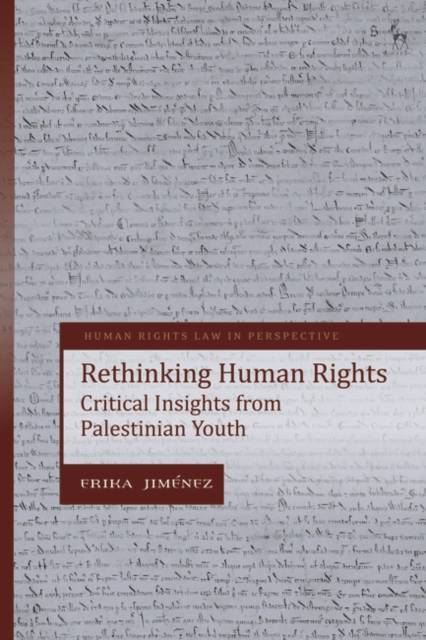
- Afhalen na 1 uur in een winkel met voorraad
- Gratis thuislevering in België vanaf € 30
- Ruim aanbod met 7 miljoen producten
- Afhalen na 1 uur in een winkel met voorraad
- Gratis thuislevering in België vanaf € 30
- Ruim aanbod met 7 miljoen producten
Zoeken
€ 203,95
+ 407 punten
Omschrijving
Palestinians have used the language of human rights to articulate their struggle against the Israeli occupation and internationalise the injustices they face. Palestinian young people learning about human rights at school experience a dissonance between the aspirational and internationalised framework of those norms and the layers of injustice of their own lived experience. Drawing on research in the occupied West Bank, this book explores the three layers of marginalisation faced by Palestinian young people - the Israeli occupation that denies them their humanity; the Palestinian pseudo-state that denies them a voice; and patriarchal structures that deny them agency - to show how these barriers influence their understanding of, and scepticism towards, human rights. Influenced by decolonial theories, this book illuminates how space needs to be created for the counter-narratives of the oppressed in human rights discourse, which may not align with more conventional representations of human rights. It contends that human rights and, by extension, human rights education in the Palestinian context (and beyond) needs to be critiqued, decolonised and ultimately transformed.
Specificaties
Betrokkenen
- Auteur(s):
- Uitgeverij:
Inhoud
- Aantal bladzijden:
- 248
- Taal:
- Engels
- Reeks:
Eigenschappen
- Productcode (EAN):
- 9781509954827
- Verschijningsdatum:
- 17/10/2024
- Uitvoering:
- Hardcover
- Formaat:
- Genaaid
- Afmetingen:
- 156 mm x 234 mm
- Gewicht:
- 517 g

Alleen bij Standaard Boekhandel
+ 407 punten op je klantenkaart van Standaard Boekhandel
Beoordelingen
We publiceren alleen reviews die voldoen aan de voorwaarden voor reviews. Bekijk onze voorwaarden voor reviews.







